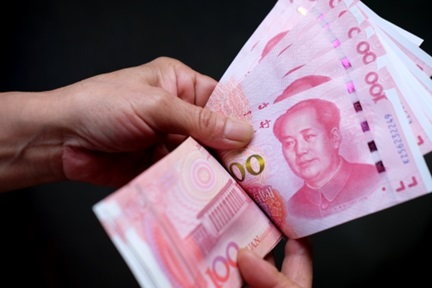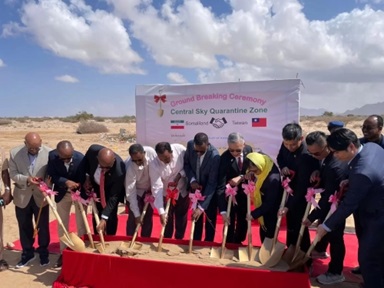Japanese investors fuel African used car platform
Startup seeks to build trust in second-hand vehicle market

A group of Japanese investors recently made a US$5m investment in Peach Cars, a marketplace based in Kenya that connects buyers and sellers of used cars. To increase transparency in the mistrust-ridden used-car market, Peach Cars has developed a smart engine check device that utilises proprietary software to automate the car inspection process. The 225-point inspection system, designed to match Japanese auto industry standards – appropriate given that most cars in Kenya are from Japan – provides a comprehensive report of all vehicle systems.
Peach Cars' seed funding round was led by The University of Tokyo Edge Capital Partners (UTEC). Other backers include Shintaro Yamada, the CEO and founder of Japanese e-commerce company Mercari; Peter Kenevan, PayPal's head of Japan; and Hiroaki Ohta, general partner at Tokyo-based Waseda University Ventures. UTEC aims to assist the company with product strategy, research and development, cross-border expansion, and forging strategic partnerships with Japanese automakers. Kiran Mysore, a principal at UTEC, views the investment as a chance to strengthen Japan-Africa collaboration by leveraging Japanese automotive expertise.
Peach's CEO and co-founder, Kaoru Kaganoi, noted that Kenya lacks reliable second-hand marketplace which is riddled with price opacity, fraud, insecure payments, and poor customer service. Despite being the economic engine of East Africa, Kenya has a low motorisation rate, with just 34 vehicles per thousand people, compared to the global average of 180. As of 2020, 2m vehicles were registered in Kenya, which has a population of 52m. The number of cars on the road has doubled since 2010, growing at a 7% compound annual growth rate. It is expected to reach 3m by 2030. But 90% of these are used imports.
The small new vehicle market and dominance of second-hand vehicles in Kenya are primarily due to affordability issues. Vehicle financing options often carry high interest rates and come with strict repayment terms. Consequently, only 12% of Kenyans, can afford cars. A significantly smaller proportion can afford new cars, which typically cost two to three times as much as imported used vehicles.
Currently, Kenya houses five operational automotive production plants: Associated Vehicle Assemblers (Fuso, Toyota, Proton, Mahindra, Hino, Scania, Tata, Volvo, Daewoo and Bajaj), Kenya Vehicle Manufacturers (Volkswagen and Peugeot), Transafrica Motors (FAW), Isuzu East Africa (formerly GM East Africa), and local brand Mobius Motors. The first three collectively assemble more than 20 different brands, with Isuzu East Africa – the only Isuzu plant outside of Japan that's fully owned – focusing on commercial vehicle assembly. Together, these plants have an installed capacity of 47,000, yet they only produce up to 10,000 vehicles annually. Most function as semi knocked down (SKD) facilities, while a few operate as completely knocked down (CKD) units. There are no completely built up (CBU) automobile facilities in Kenya.
Japan is the leading source of vehicles entering Kenya, accounting for 80% of passenger vehicle imports, followed by the UK and South Africa at 8% and 4% respectively. Toyota dominates the used car market in Kenya accounting for as much as half the market share. It also ranks third in the commercial vehicle market, holding a 12% share, behind Isuzu (40%) and Mitsubishi (25%). 50% of the commercial vehicle market is cornered by Japan, followed by South Africa (16%), China (10%), and India (7%).
References
‘Peach Cars, a Kenyan used-car marketplace, raises $5M in seed investment’, TechCrunch, 15 June 2023
‘Study for the promotion of the African automotive industry’, Japan International Cooperation Agency, February 2022
‘World Economic Outlook Database’, IMF, April 2023
‘Solutions – Associated Vehicle Assemblers’, Associated Vehicle Assemblers, Accessed 27 June 2023
‘Kenya Vehicle Manufacturers’, Kenya Vehicle Manufacturers, Accessed 27 June 2023
‘FAW’, FAW, Accessed 27 June 2023
‘Cordia Directions Limited (Peach Technologies)’, The University of Tokyo Edge Capital Partners, Accessed 27 June 2023







